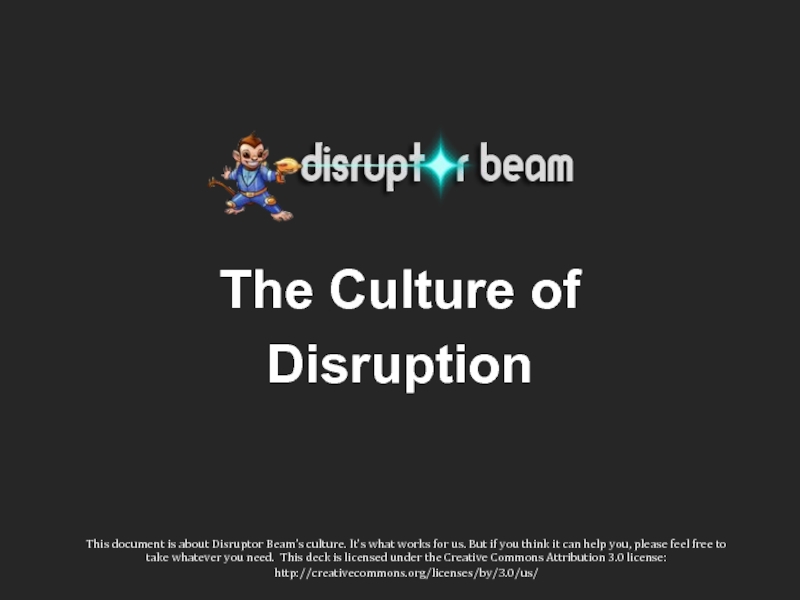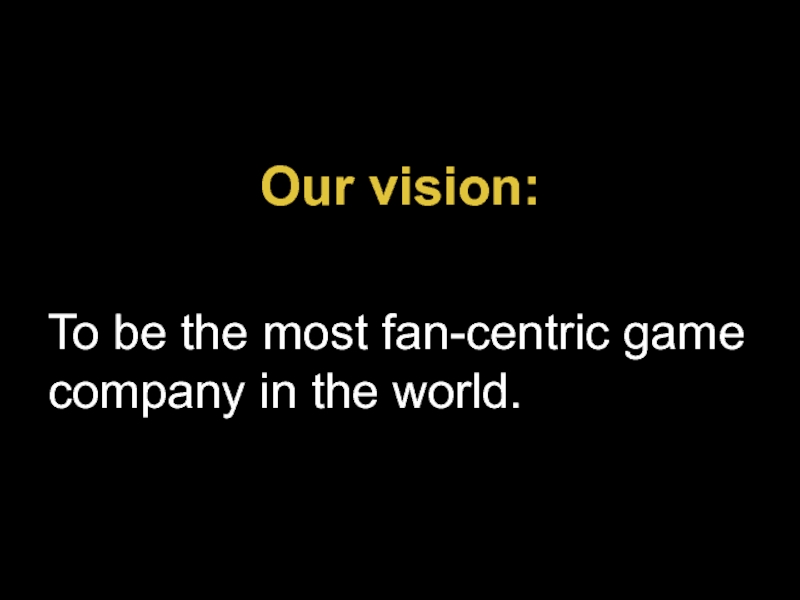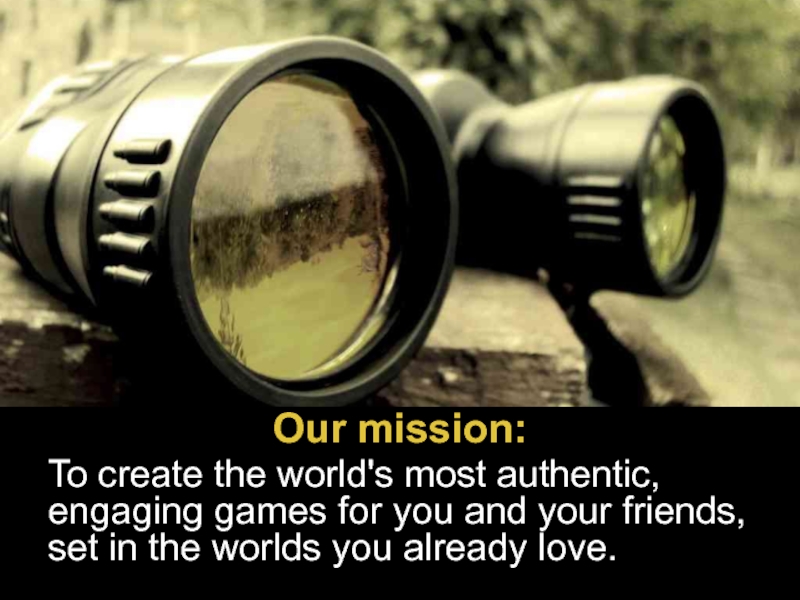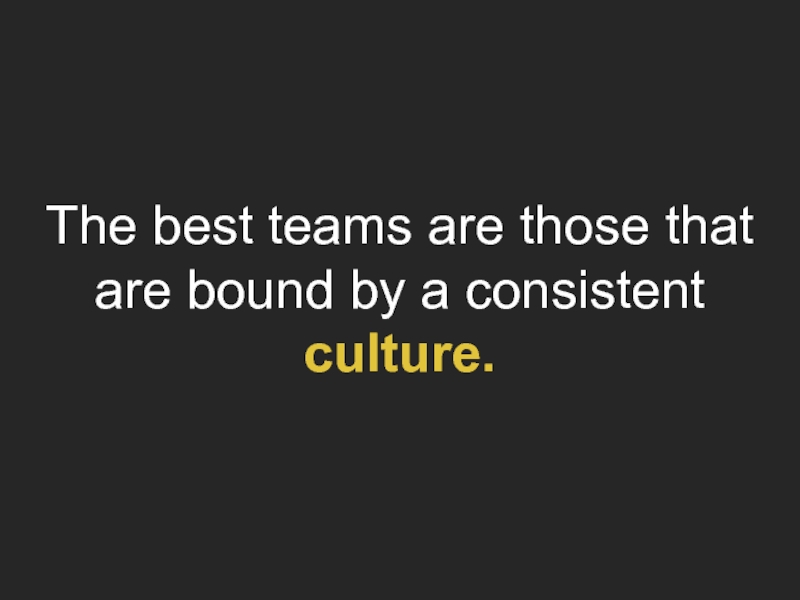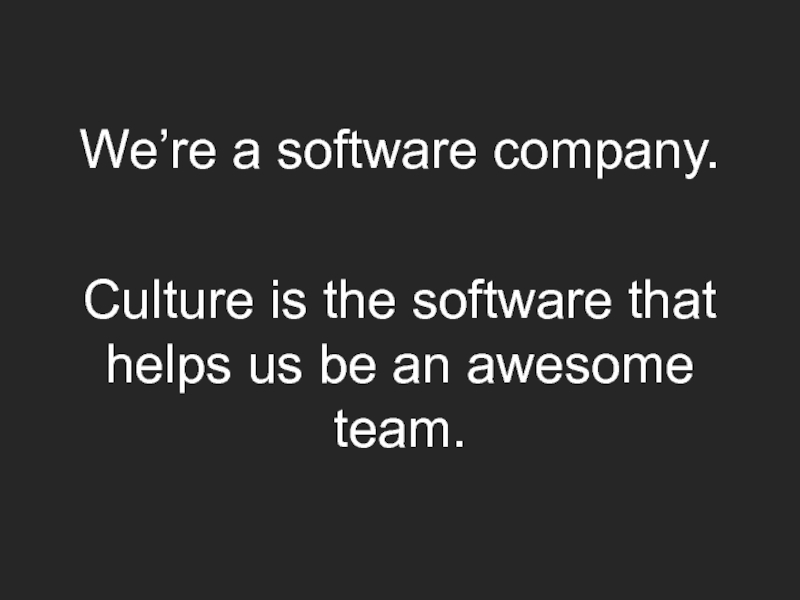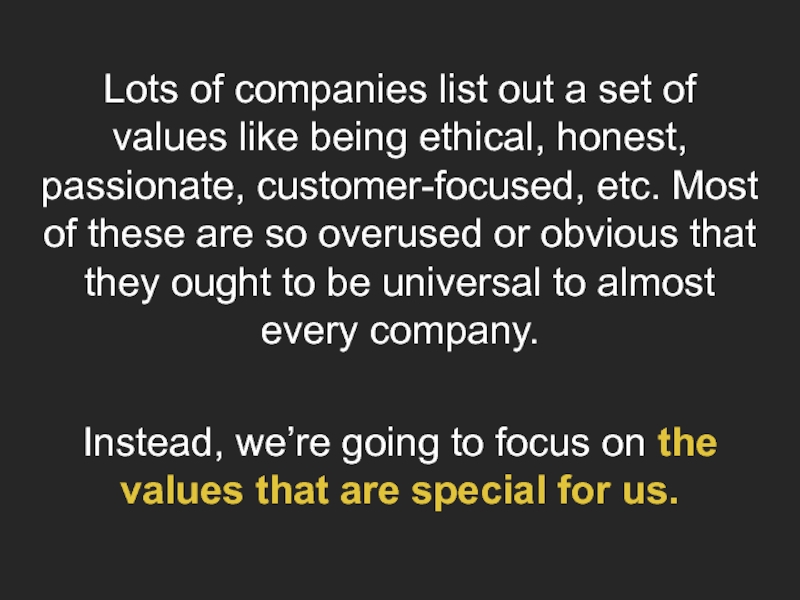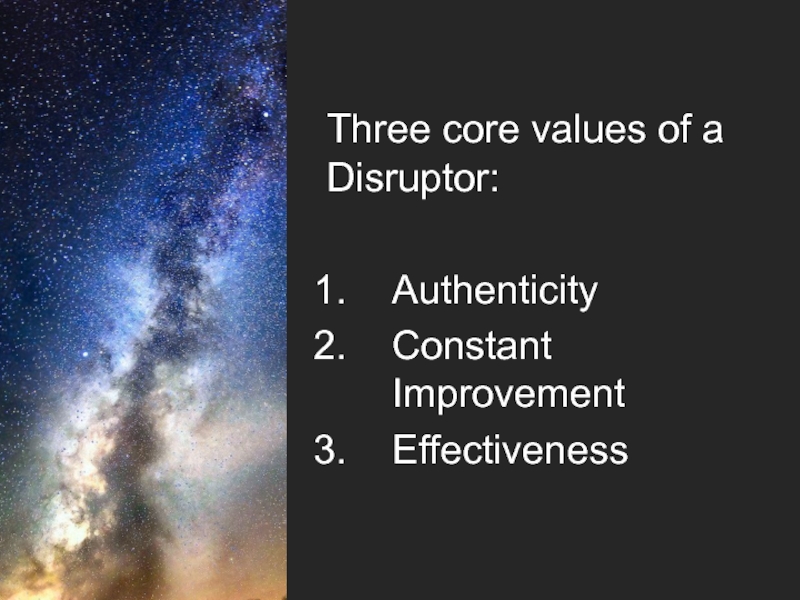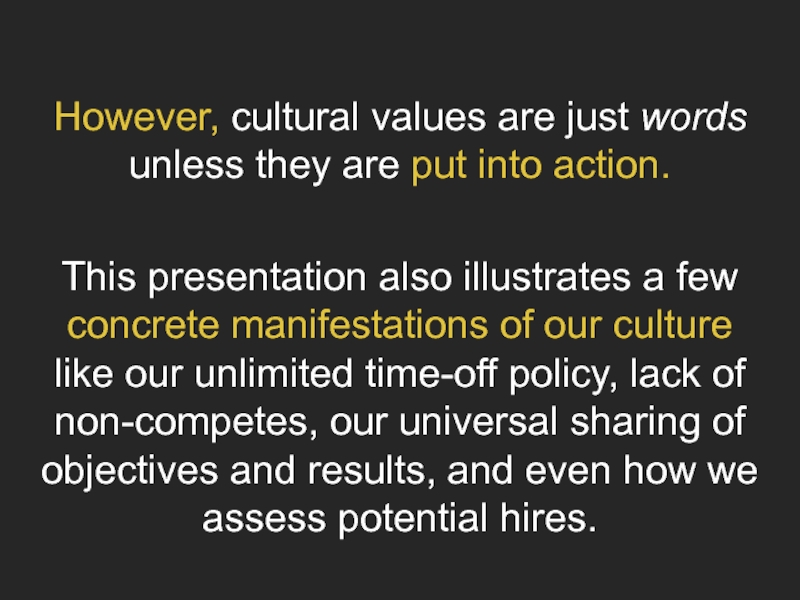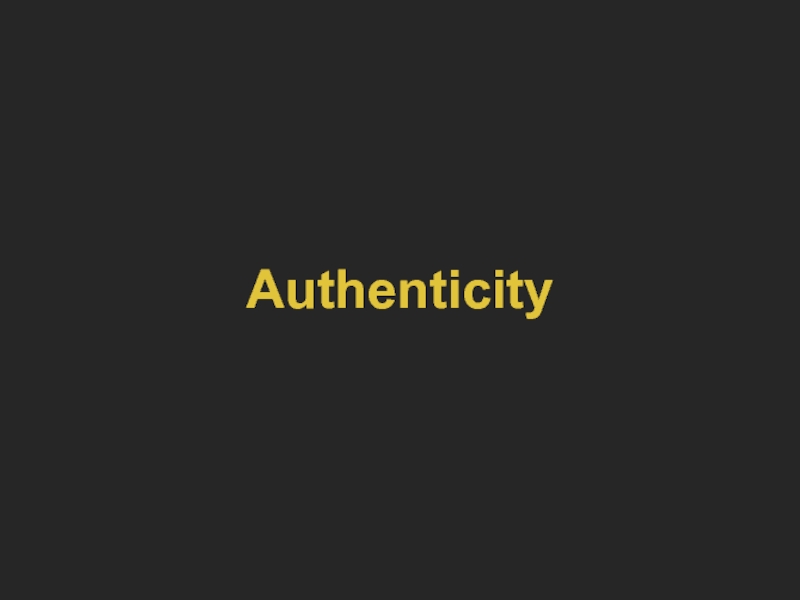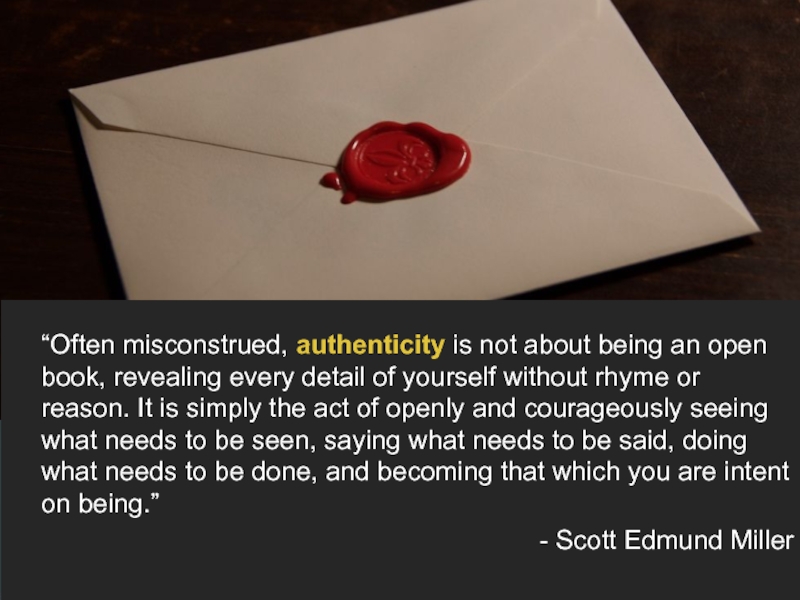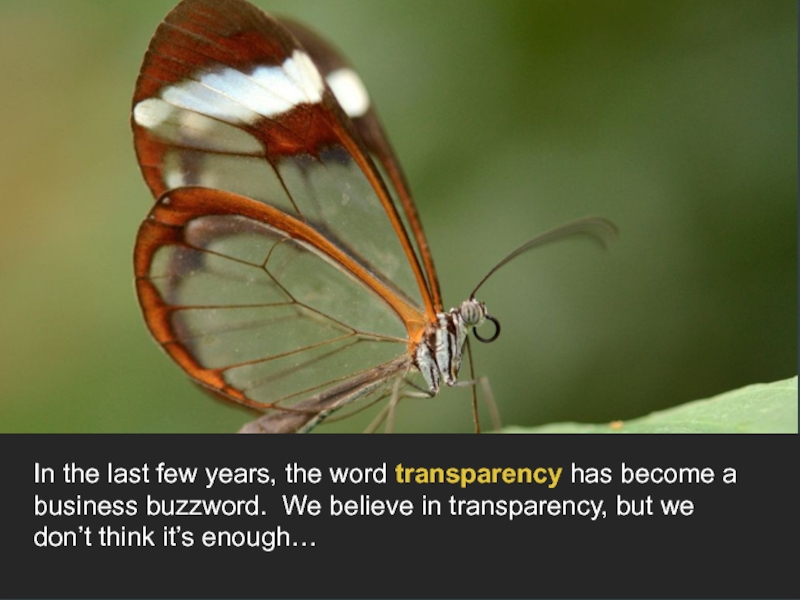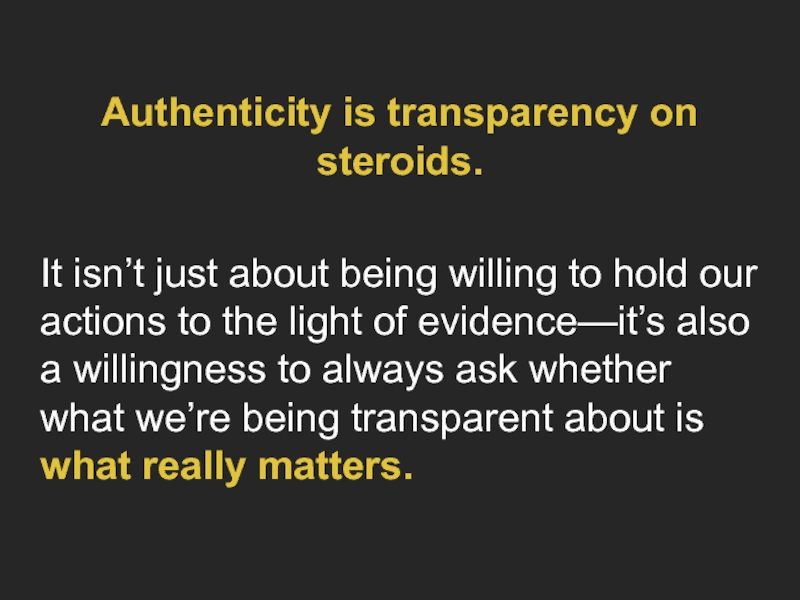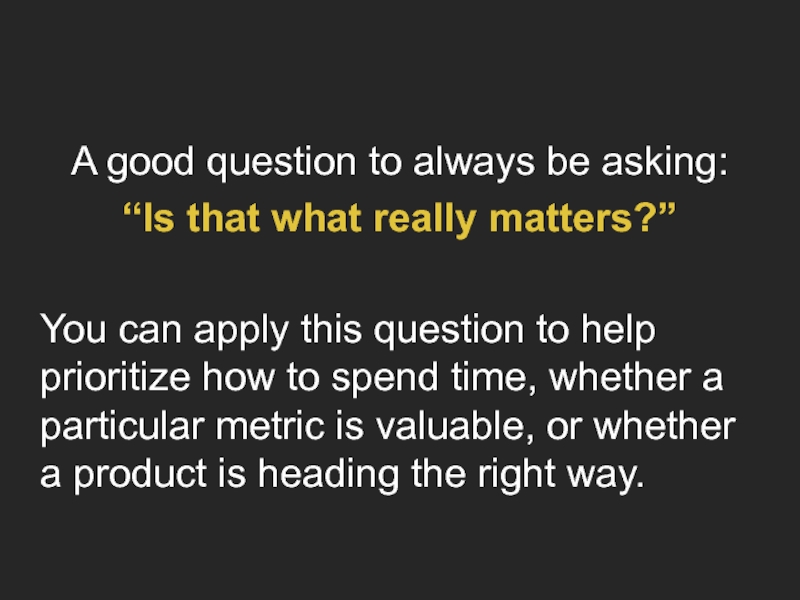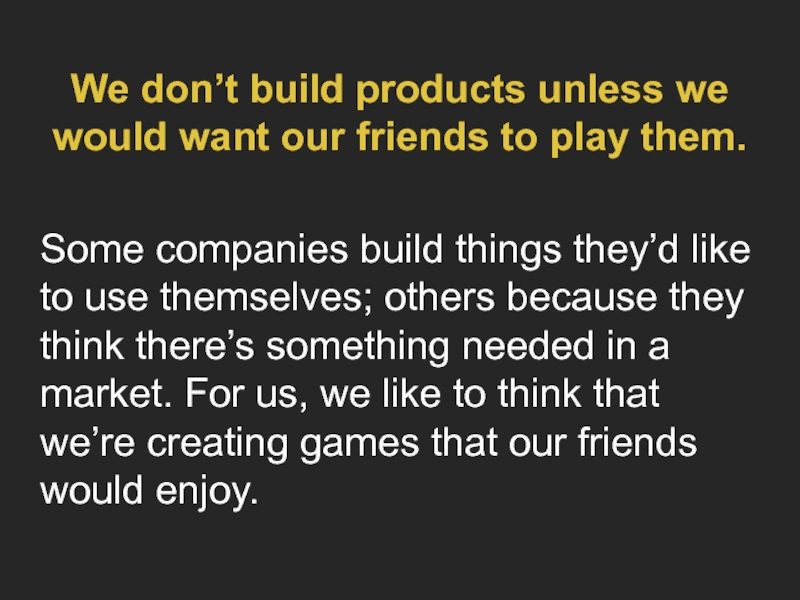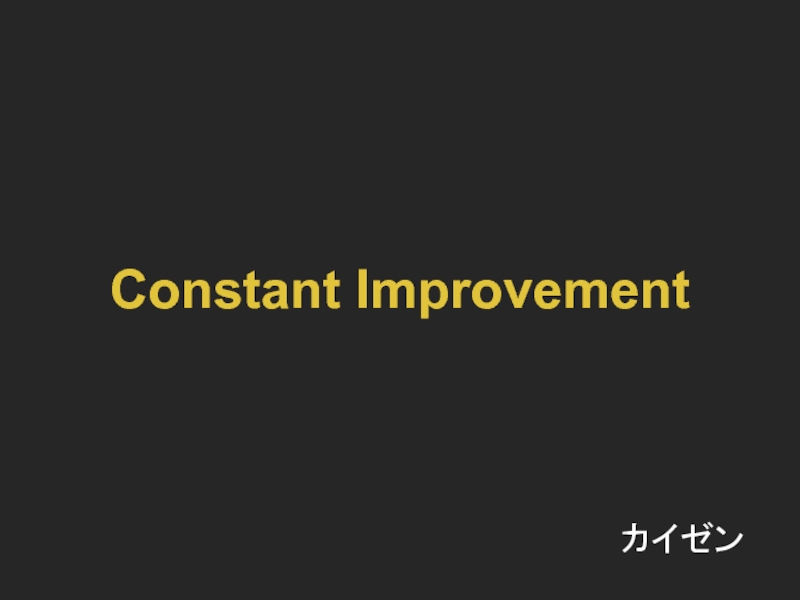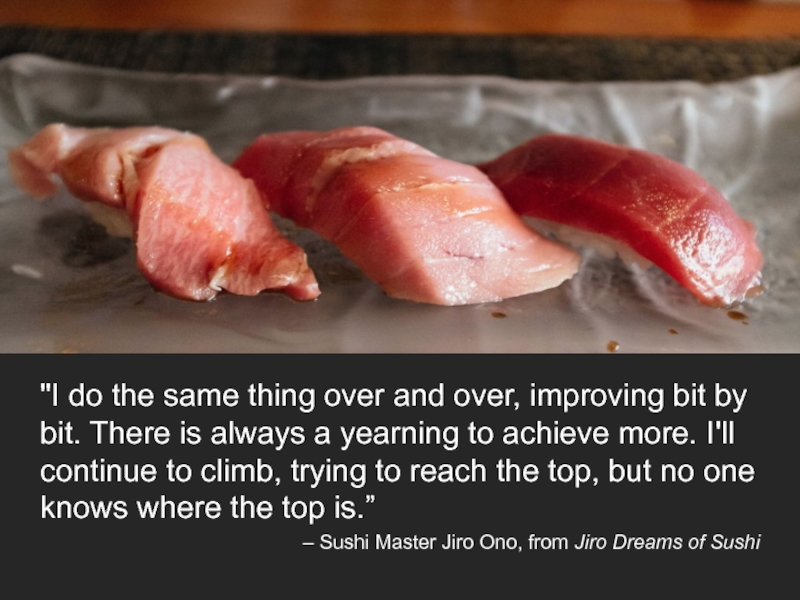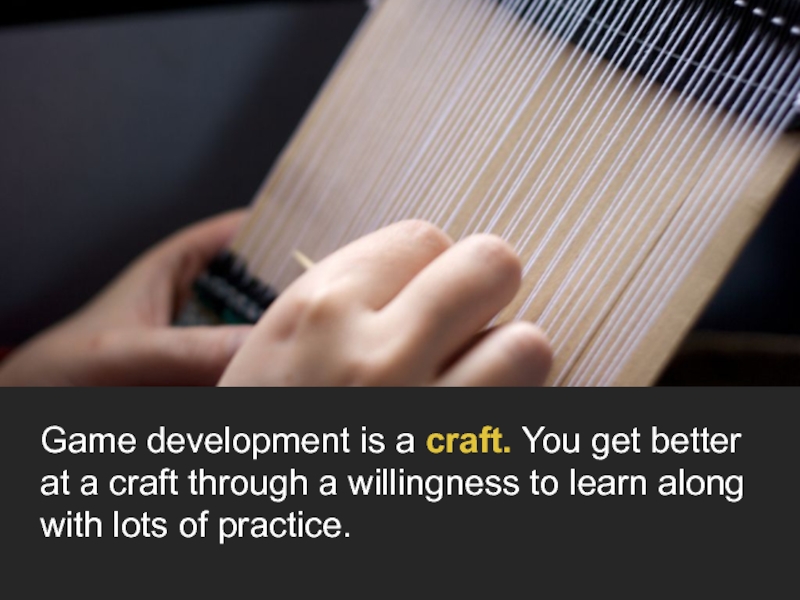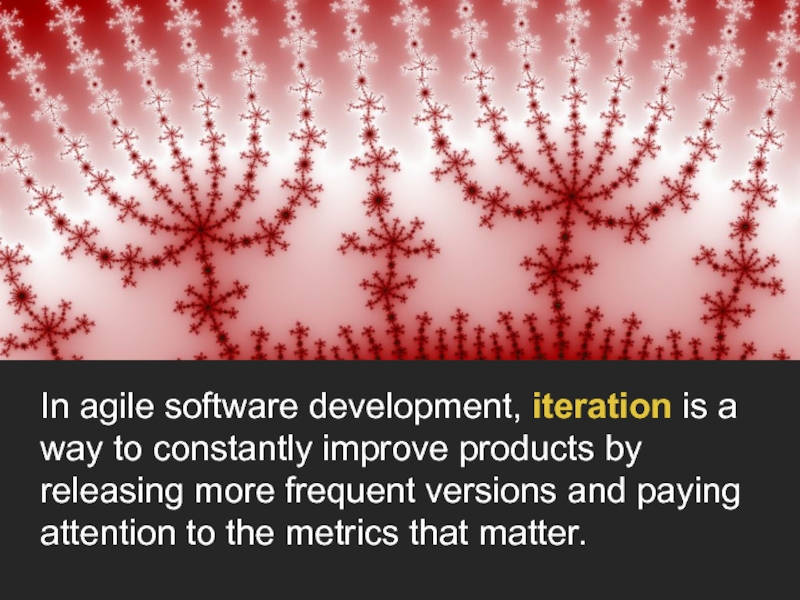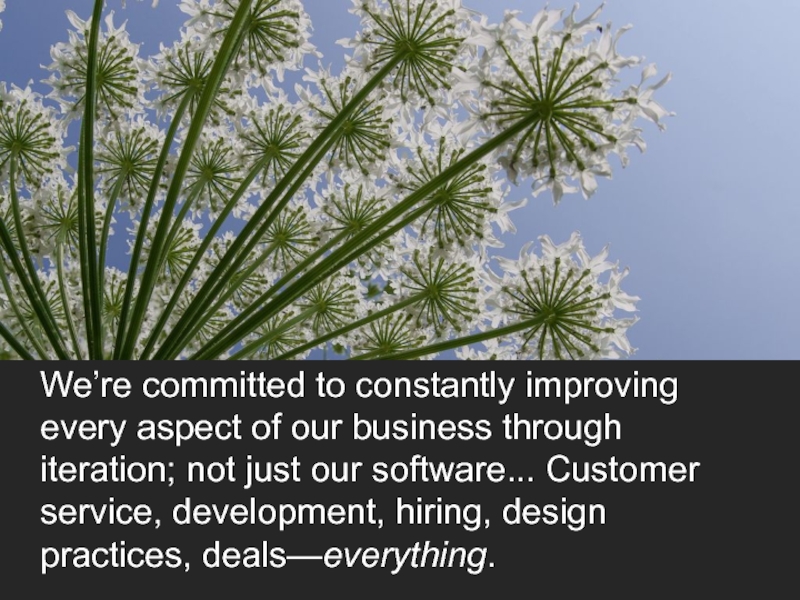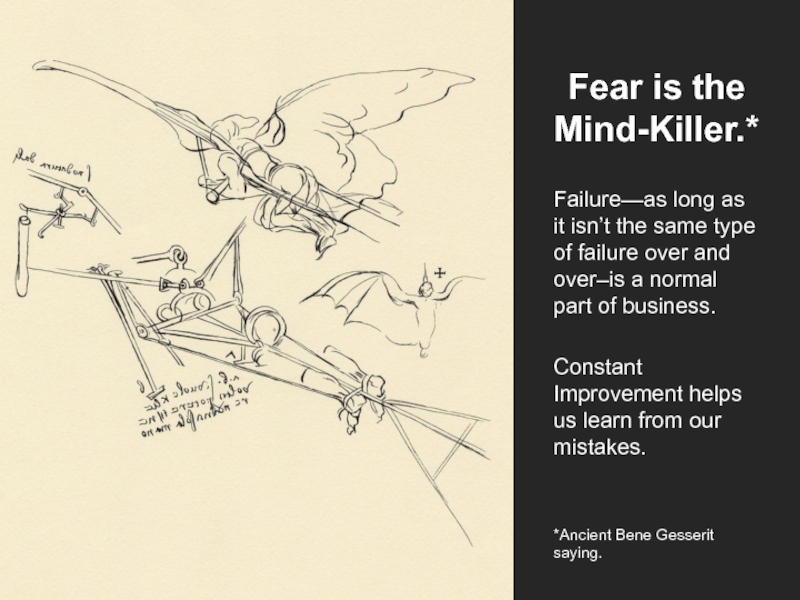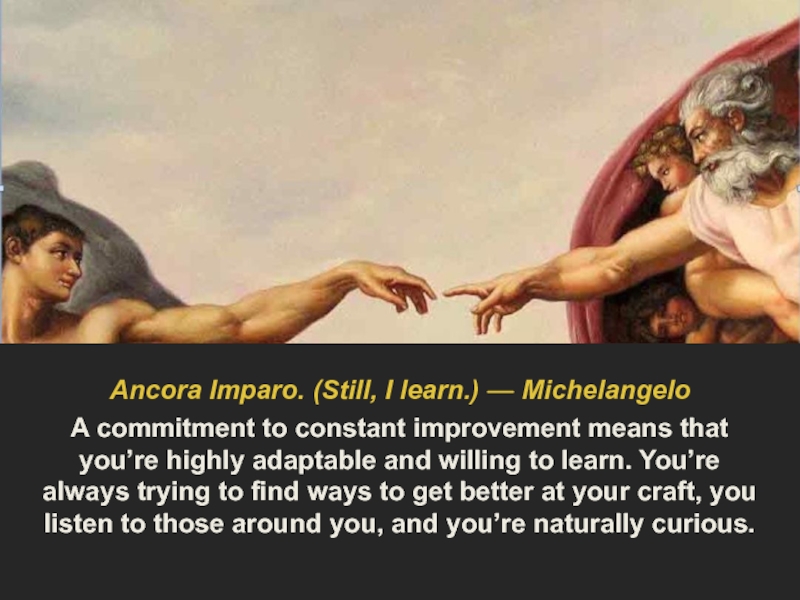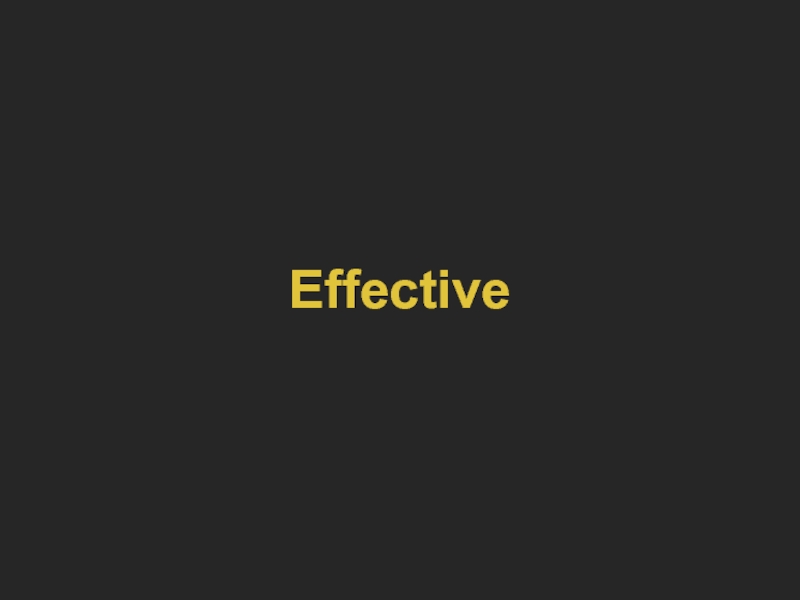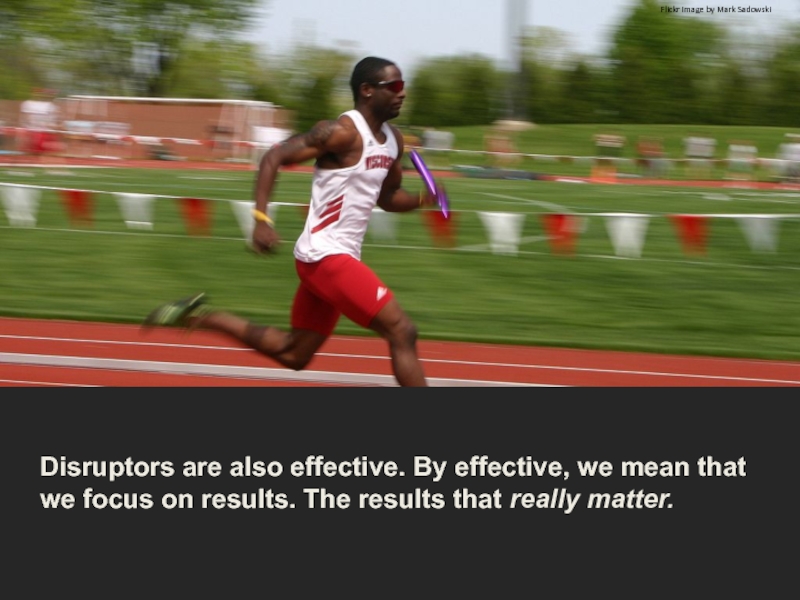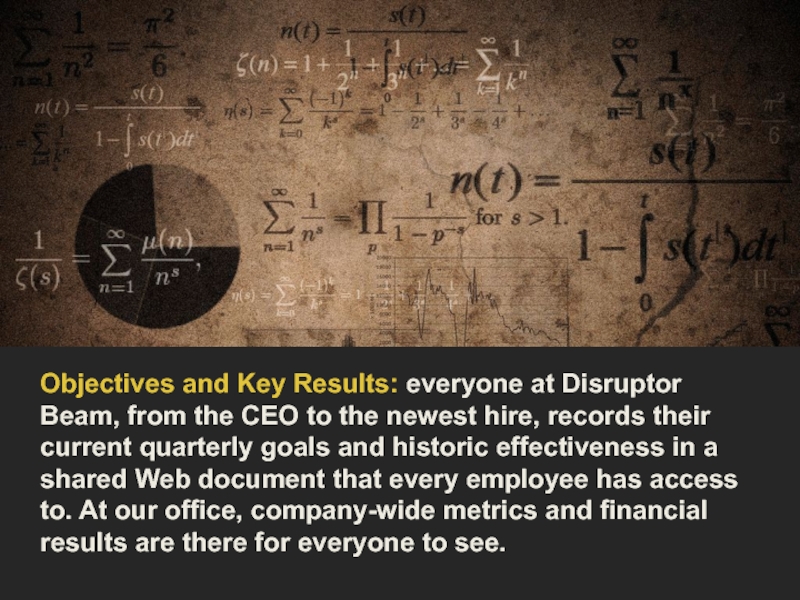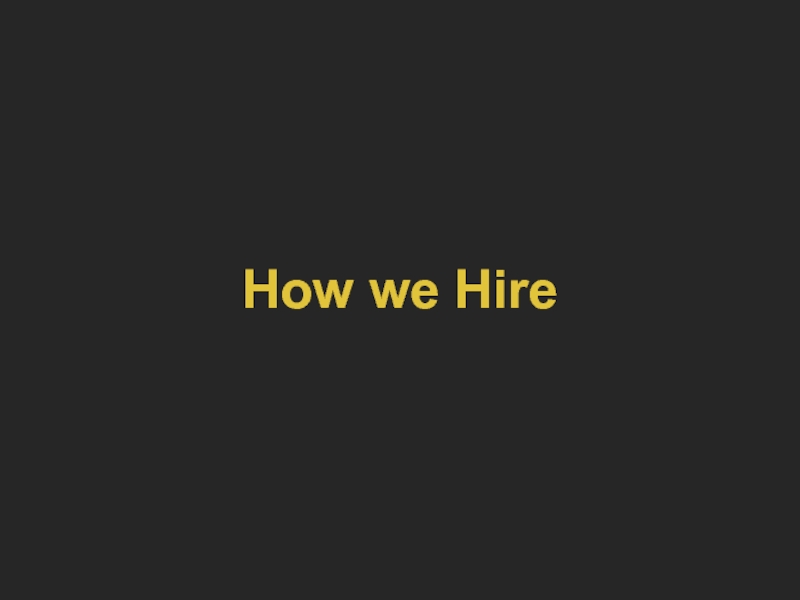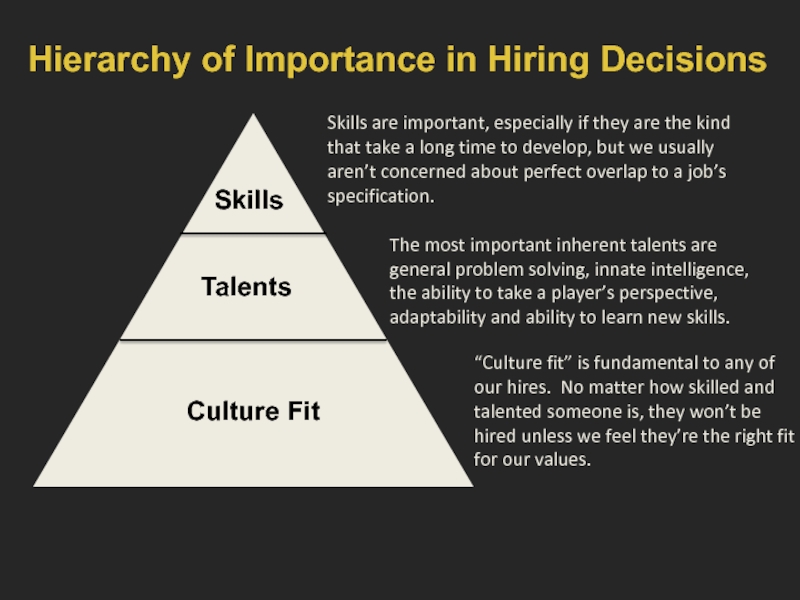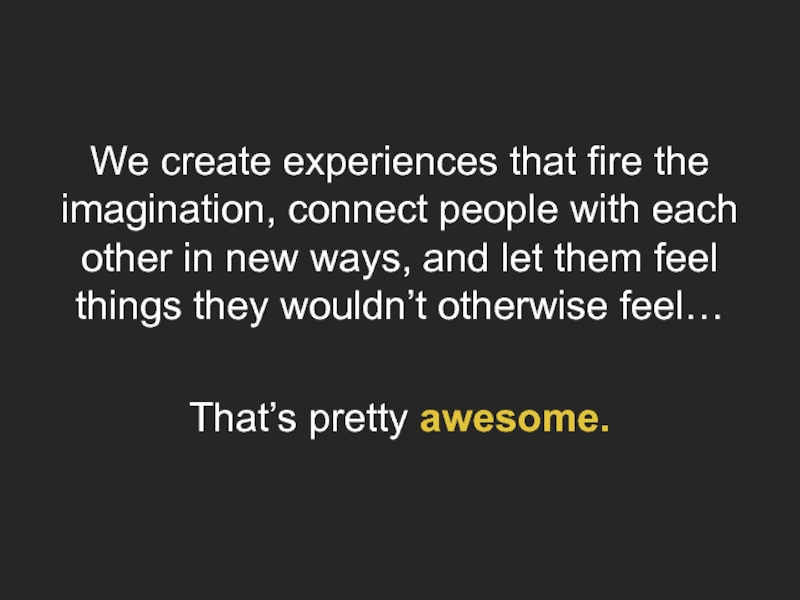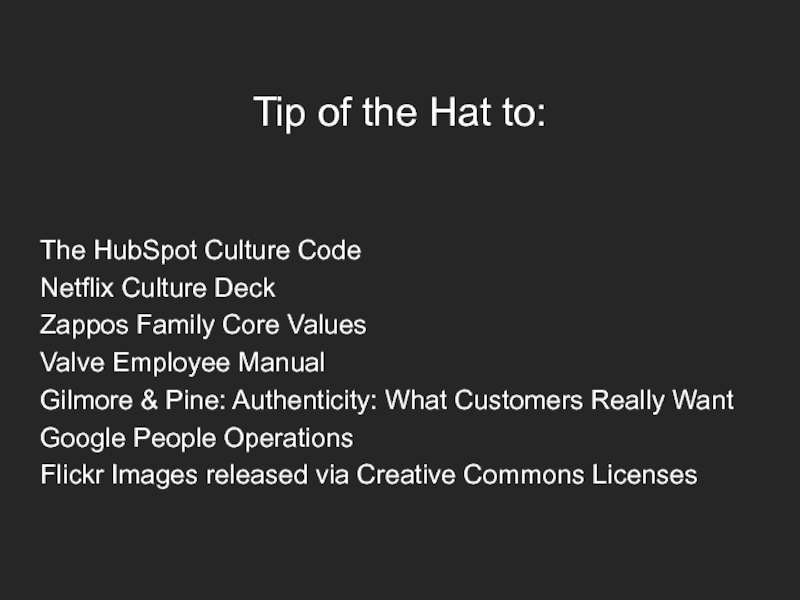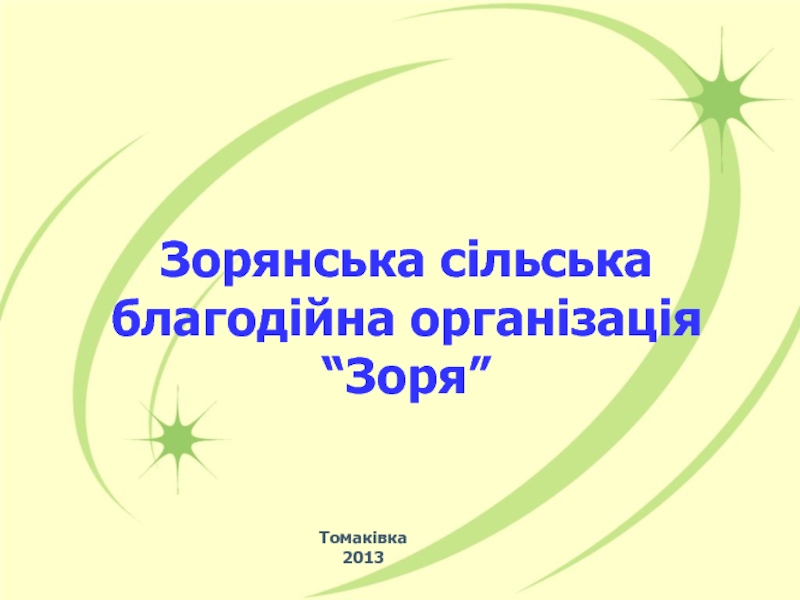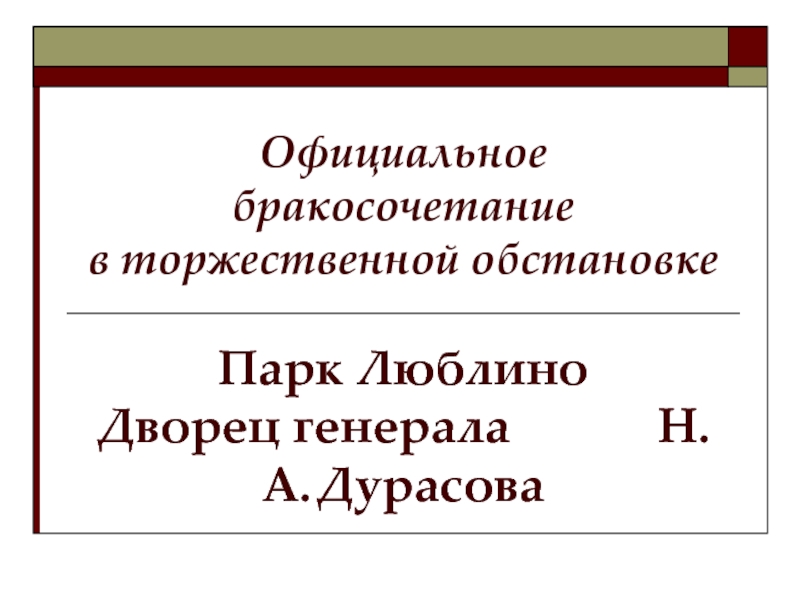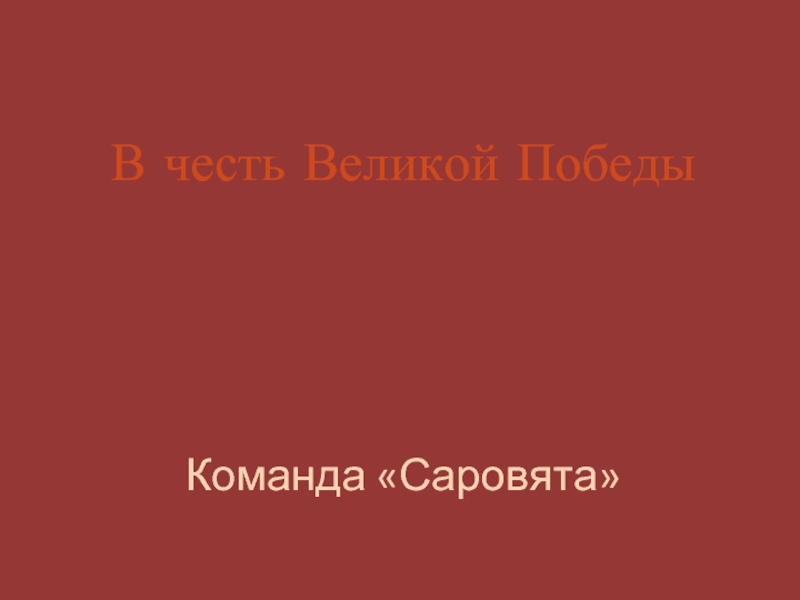- Главная
- Разное
- Дизайн
- Бизнес и предпринимательство
- Аналитика
- Образование
- Развлечения
- Красота и здоровье
- Финансы
- Государство
- Путешествия
- Спорт
- Недвижимость
- Армия
- Графика
- Культурология
- Еда и кулинария
- Лингвистика
- Английский язык
- Астрономия
- Алгебра
- Биология
- География
- Детские презентации
- Информатика
- История
- Литература
- Маркетинг
- Математика
- Медицина
- Менеджмент
- Музыка
- МХК
- Немецкий язык
- ОБЖ
- Обществознание
- Окружающий мир
- Педагогика
- Русский язык
- Технология
- Физика
- Философия
- Химия
- Шаблоны, картинки для презентаций
- Экология
- Экономика
- Юриспруденция
The Culture of Disruption презентация
Содержание
- 1. The Culture of Disruption
- 2. Our vision: To be
- 3. Our mission: To create the world's most
- 4. The best teams are those that are bound by a consistent culture.
- 5. We’re a software company. Culture is
- 6. Lots of companies list out a set
- 7. Three core values of a Disruptor: Authenticity Constant Improvement Effectiveness
- 8. However, cultural values are just words
- 9. Authenticity
- 10. “Often misconstrued, authenticity is not
- 11. In the last few years, the
- 12. Authenticity is transparency on steroids. It
- 13. A good question to always be
- 15. Customers can tell when something
- 16. Great companies don’t need (or want) non-compete
- 17. We don’t build products unless we would
- 18. Constant Improvement カイゼン
- 19. カイゼン "I do the same thing over
- 20. Game development is a craft. You get
- 21. In agile software development, iteration is a
- 22. We’re committed to constantly improving every aspect
- 23. Fear is the Mind-Killer.* Failure—as
- 24. Ancora Imparo. (Still, I
- 25. Effective
- 26. Disruptors are also effective. By effective, we
- 27. We don’t track attendance or time in
- 28. Flickr Image by Mark Sadowski Objectives and
- 29. How we Hire
- 30. Everyone in the company participates in
- 31. Culture Fit
- 32. Why all this really matters…
- 33. We create experiences that fire the imagination,
- 34. Our company is an engine for innovation.
- 35. The more our culture help us innovate
- 36. Tip of the Hat to:
Слайд 1
The Culture of
Disruption
This document is about Disruptor Beam’s culture. It’s what
http://creativecommons.org/licenses/by/3.0/us/
Слайд 3Our mission:
To create the world's most authentic, engaging games for you
Слайд 6Lots of companies list out a set of values like being
Instead, we’re going to focus on the values that are special for us.
Слайд 8
However, cultural values are just words unless they are put into
This presentation also illustrates a few concrete manifestations of our culture like our unlimited time-off policy, lack of non-competes, our universal sharing of objectives and results, and even how we assess potential hires.
Слайд 10
“Often misconstrued, authenticity is not about being an open book, revealing
- Scott Edmund Miller
Слайд 11
In the last few years, the word transparency has become a
Слайд 12Authenticity is transparency on steroids.
It isn’t just about being willing to
Слайд 13
A good question to always be asking:
“Is that what really matters?”
You
Слайд 14
“When we rely on vanity metrics, a funny thing happens. When
Eric Ries
Lean Startup Dude
Authenticity is the antidote to a certain problem:
Слайд 15
Customers can tell when something is inauthentic. Although we sometimes make
Authentic companies build authentic products.
Слайд 16Great companies don’t need (or want) non-compete agreements.
None of our employees
Слайд 17We don’t build products unless we would want our friends to
Some companies build things they’d like to use themselves; others because they think there’s something needed in a market. For us, we like to think that we’re creating games that our friends would enjoy.
Слайд 19カイゼン
"I do the same thing over and over, improving bit by
– Sushi Master Jiro Ono, from Jiro Dreams of Sushi
Слайд 20Game development is a craft. You get better at a craft
Слайд 21In agile software development, iteration is a way to constantly improve
Слайд 22We’re committed to constantly improving every aspect of our business through
Слайд 23
Fear is the Mind-Killer.*
Failure—as long as it isn’t the same type
Constant Improvement helps us learn from our mistakes.
*Ancient Bene Gesserit saying.
Слайд 24
Ancora Imparo. (Still, I learn.) — Michelangelo
A commitment to constant improvement
Слайд 26Disruptors are also effective. By effective, we mean that we focus
Flickr Image by Mark Sadowski
Слайд 27We don’t track attendance or time in the office.
If you are
Flickr Image by Paul Bica
Слайд 28Flickr Image by Mark Sadowski
Objectives and Key Results: everyone at Disruptor
Слайд 30
Everyone in the company participates in hiring decisions.
The most important part
Слайд 31
Culture Fit
Skills
Skills are important, especially if they are the kind that
The most important inherent talents are general problem solving, innate intelligence, the ability to take a player’s perspective, adaptability and ability to learn new skills.
“Culture fit” is fundamental to any of our hires. No matter how skilled and talented someone is, they won’t be hired unless we feel they’re the right fit for our values.
Talents
Hierarchy of Importance in Hiring Decisions
Слайд 33We create experiences that fire the imagination, connect people with each
That’s pretty awesome.
Слайд 34Our company is an engine for innovation.
It lets us come together
Our culture is a strategic advantage.
Слайд 35The more our culture help us innovate
the more we grow
the
the more we get to keep innovating
Слайд 36
Tip of the Hat to:
The HubSpot Culture Code
Netflix Culture Deck
Zappos Family
Valve Employee Manual
Gilmore & Pine: Authenticity: What Customers Really Want
Google People Operations
Flickr Images released via Creative Commons Licenses
